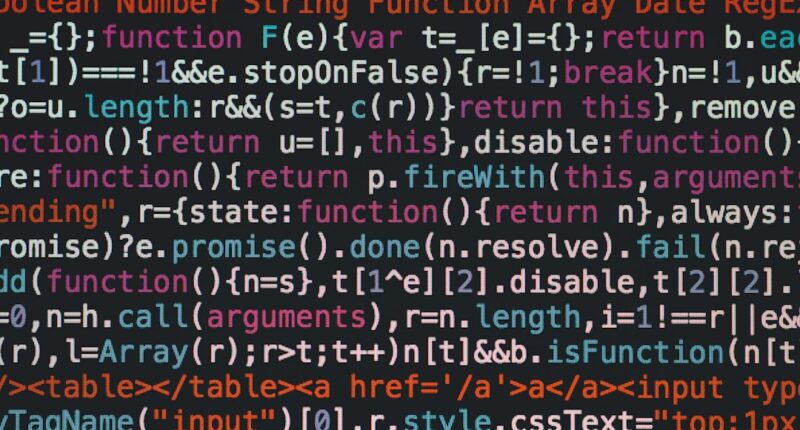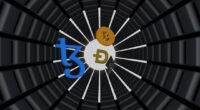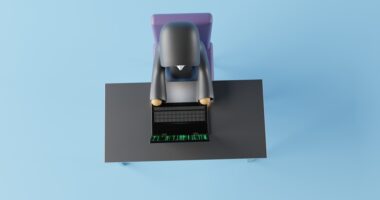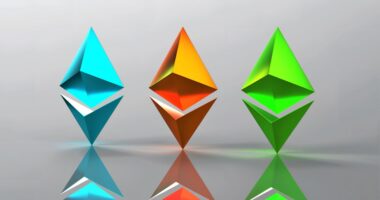The rise of non-fungible tokens (NFTs) has created a demand for developers who can create and deploy smart contracts on the Ethereum network. NFTs have gained significant popularity in the crypto industry, with artists, collectors, and investors flocking to this new digital asset class. As a result, the need for NFT Solidity developers has skyrocketed.
NFT Solidity developers are responsible for creating and deploying smart contracts that power NFTs on the Ethereum blockchain. They play a crucial role in ensuring the security and functionality of NFTs, as well as enabling the buying, selling, and trading of these unique digital assets. With the increasing adoption of NFTs, the demand for skilled NFT Solidity developers is only expected to grow.
Key Takeaways
- The demand for NFT Solidity Developers is growing rapidly in the crypto industry.
- NFTs are unique digital assets that require expertise in Solidity programming language.
- Essential technical skills for NFT Solidity Developers include proficiency in smart contract development and deployment.
- Knowledge of blockchain technology and Ethereum network is crucial for building and integrating NFT marketplaces.
- Communication and collaboration skills are important for working in teams as an NFT Solidity Developer.
Understanding NFTs and Solidity Programming Language
To become an NFT Solidity developer, it is essential to have a strong understanding of both NFTs and the Solidity programming language. NFTs are unique digital assets that are stored on the blockchain. Unlike cryptocurrencies like Bitcoin or Ethereum, which are fungible and can be exchanged on a one-to-one basis, each NFT has its own distinct value and cannot be replicated.
Solidity is a programming language specifically designed for creating smart contracts on the Ethereum network. Smart contracts are self-executing contracts with the terms of the agreement directly written into code. They automatically execute when certain conditions are met, eliminating the need for intermediaries.
Essential Technical Skills for NFT Solidity Developers
NFT Solidity developers must possess a strong foundation in computer science and programming. They should be proficient in data structures, algorithms, and object-oriented programming. These skills are crucial for writing efficient and secure code that can handle complex business logic.
Additionally, NFT Solidity developers should have experience with version control systems like Git. Version control allows developers to track changes to their code, collaborate with other developers, and easily revert to previous versions if needed.
Knowledge of Blockchain Technology and Ethereum Network
In addition to understanding NFTs and Solidity, NFT Solidity developers must have a deep understanding of blockchain technology and the Ethereum network. They should be familiar with the consensus mechanism, mining, and transaction processing on the Ethereum network.
Blockchain technology is the underlying technology behind cryptocurrencies and NFTs. It is a decentralized and transparent ledger that records all transactions across a network of computers. Understanding how blockchain works is essential for developing secure and reliable smart contracts.
Proficiency in Smart Contract Development and Deployment
One of the core responsibilities of an NFT Solidity developer is to create and deploy smart contracts on the Ethereum network. They should be proficient in writing secure and efficient code that can handle complex business logic.
Smart contract development requires a thorough understanding of Solidity syntax, as well as best practices for security and optimization. NFT Solidity developers should be able to write code that is resistant to common vulnerabilities, such as reentrancy attacks or integer overflow/underflow.
Experience with Web3.js and Other Relevant Tools
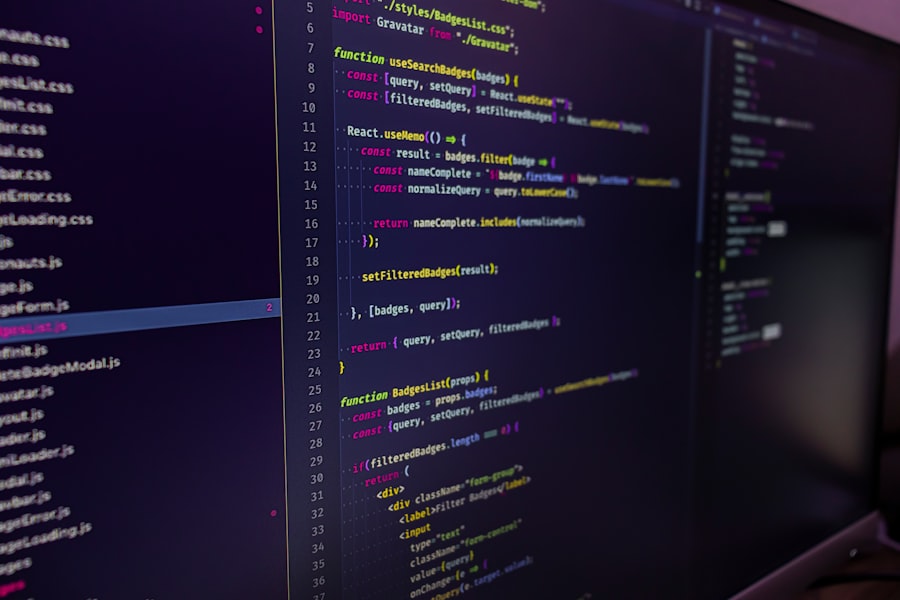
NFT Solidity developers should have experience with Web3.js, a JavaScript library used to interact with the Ethereum network. Web3.js provides a set of APIs that allow developers to interact with smart contracts, send transactions, and retrieve data from the blockchain.
In addition to Web3.js, NFT Solidity developers should be familiar with other relevant tools like Truffle, Remix, and Ganache. Truffle is a development framework that provides a suite of tools for smart contract development, testing, and deployment. Remix is an online IDE (Integrated Development Environment) specifically designed for Solidity development. Ganache is a personal Ethereum blockchain that allows developers to test their smart contracts in a local environment.
Familiarity with Cryptography and Security Protocols
Security is of utmost importance when it comes to NFTs and smart contracts. NFT Solidity developers should have a strong understanding of cryptography and security protocols. They should be able to implement secure authentication and encryption mechanisms to protect user data.
Cryptography is the practice of secure communication in the presence of third parties. It involves techniques such as encryption, decryption, digital signatures, and hash functions. NFT Solidity developers should be familiar with these concepts and know how to apply them in the context of smart contract development.
Ability to Build and Integrate NFT Marketplaces
NFT Solidity developers should have the ability to build and integrate NFT marketplaces. NFT marketplaces are platforms where users can buy, sell, and trade NFTs. These marketplaces often require complex functionality, such as bidding systems, royalty distributions, and secondary sales.
NFT Solidity developers should be able to create user-friendly interfaces that allow users to interact with the marketplace and perform transactions securely. They should also be able to integrate with external services like payment gateways or identity verification systems.
Communication and Collaboration Skills for Working in Teams
NFT Solidity developers should have strong communication and collaboration skills. They often work in teams with other developers, designers, and product managers. Effective communication is crucial for understanding project requirements, discussing technical solutions, and resolving issues.
Furthermore, NFT Solidity developers should be able to communicate technical concepts to non-technical stakeholders. This includes explaining the benefits and limitations of blockchain technology, as well as the potential risks associated with smart contracts.
Career Opportunities for NFT Solidity Developers in the Crypto Industry
The demand for NFT Solidity developers is high in the crypto industry. They can work for blockchain startups, crypto exchanges, or NFT marketplaces. These companies are constantly looking for skilled developers who can create and maintain their smart contracts.
Additionally, NFT Solidity developers can work as freelancers and offer their services to clients around the world. With the increasing popularity of NFTs, there is a growing demand for developers who can create custom NFT solutions for artists, musicians, and other content creators.
In conclusion, the rise of NFTs has created a demand for developers who can create and deploy smart contracts on the Ethereum network. NFT Solidity developers are in high demand due to the increasing popularity of NFTs in the crypto industry. To become an NFT Solidity developer, one must have a strong understanding of NFTs and the Solidity programming language. They should also possess essential technical skills, knowledge of blockchain technology and the Ethereum network, proficiency in smart contract development and deployment, experience with relevant tools like Web3.js, familiarity with cryptography and security protocols, the ability to build and integrate NFT marketplaces, and strong communication and collaboration skills. With the growing demand for NFT Solidity developers in the crypto industry, there are numerous career opportunities available, including working for blockchain startups, crypto exchanges, or NFT marketplaces, as well as freelancing and offering services to clients worldwide.
If you’re interested in becoming an NFT Solidity Developer, you may find this article on NFT-Jobs.com titled “Hello World!” quite helpful. It provides a comprehensive introduction to the world of NFT development and offers valuable insights into the skills and knowledge required to excel in this field. Whether you’re a beginner or an experienced developer looking to transition into the NFT space, this article is a great starting point. Check it out here for more information. Additionally, NFT-Jobs.com offers a wide range of resources and job listings specifically tailored for NFT developers. You can explore their website here to discover more opportunities and enhance your skills in this exciting industry.
FAQs
What is an NFT Solidity Developer?
An NFT Solidity Developer is a blockchain developer who specializes in creating non-fungible tokens (NFTs) using the Solidity programming language.
What are the skills needed to be an NFT Solidity Developer?
The skills needed to be an NFT Solidity Developer include proficiency in the Solidity programming language, knowledge of blockchain technology, experience with smart contracts, and an understanding of NFT standards such as ERC-721 and ERC-1155.
What is Solidity?
Solidity is a programming language used to write smart contracts on the Ethereum blockchain. It is a high-level language that is similar to JavaScript and is designed to be easy to learn and use.
What are NFTs?
NFTs, or non-fungible tokens, are unique digital assets that are stored on a blockchain. They are used to represent ownership of digital assets such as art, music, and collectibles.
What are smart contracts?
Smart contracts are self-executing contracts with the terms of the agreement between buyer and seller being directly written into lines of code. They are stored on a blockchain and automatically execute when certain conditions are met.
What are ERC-721 and ERC-1155?
ERC-721 and ERC-1155 are NFT standards that define how NFTs should be created and managed on the Ethereum blockchain. ERC-721 is used for creating unique, one-of-a-kind NFTs, while ERC-1155 is used for creating fungible and non-fungible tokens.
